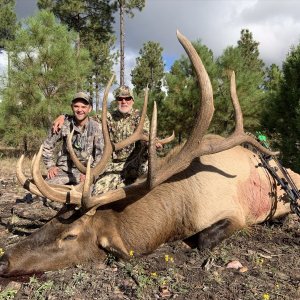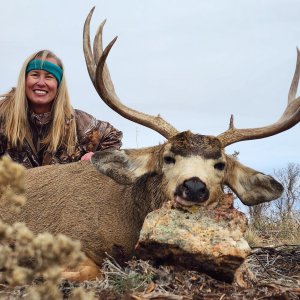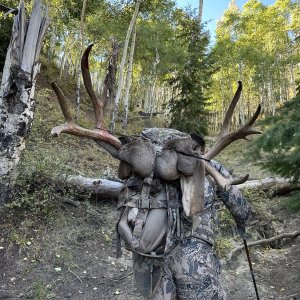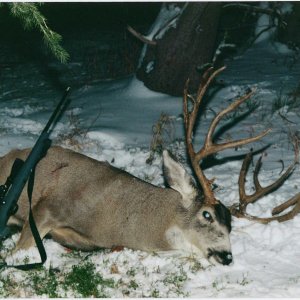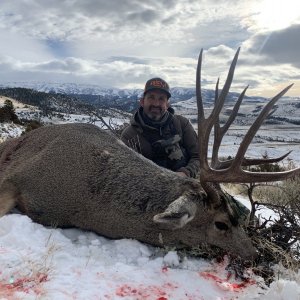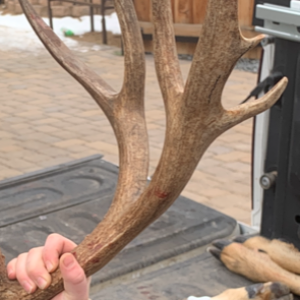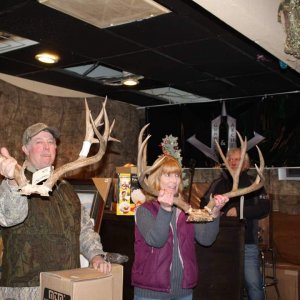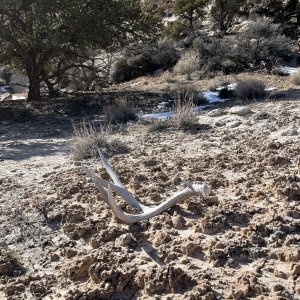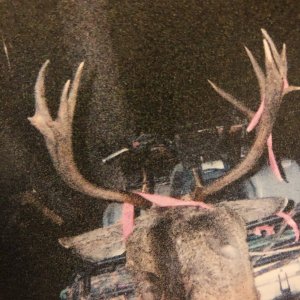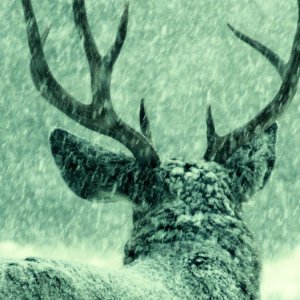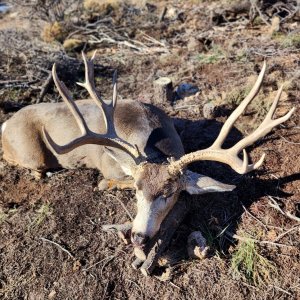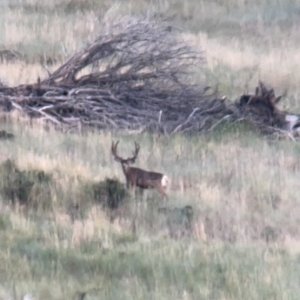O
OnTarget
Guest
Found this on another site. Looks like USO is at it again
Outfitters challenge hunting permits
By SANDRA CHEREB, Press writer
30, 2004
RENO, Nev. -- A lawsuit by three New Mexico outfitters accusing Nevada of discriminating against non-residents when issuing big game hunting tags has state wildlife officials scrambling to revamp the rules before next fall.
The Nevada Department of Wildlife issued an urgent plea to Nevada sportsmen and county advisory boards for suggested changes in the current allotment system after the 9th U.S. Circuit Court of Appeals ruled in an Arizona case that states placing limits on non-resident tags must do so in the "least discriminatory" way.
For Nevada and eight other states in the Western circuit, the new ruling is "now the law of the land," said Terry Crawforth, Nevada Department of Wildlife director and president of the International Association of Fish and Wildlife Association. Wyoming is not in the 9th Circuit.
The Nevada Wildlife Commission will discuss options to satisfy the court mandate when it meets Nov. 6 in Reno.
Some possible alternatives could include a "one pot" draw for residents and non-residents alike; limiting the number of tags a person can draw in a season; increasing fees and abandoning Internet applications to reduce the number applicants; issuing bonus points for conservation work.
Crawforth said the department hasn't "thrown in the towel," and it's possible another solution will present itself.
But until then, he said it's important for Nevada to prepare to comply with the court ruling.
"If we don't perform in good faith ... we may not have any season next year," Crawforth said of a worst-case scenario
In their lawsuit filed July 20 in U.S. District Court in Las Vegas, Jean Taulman, Lawrence Montoya, Filiberto Valerio and United States Outfitters Inc., all of Taos, N.M., allege Nevada's draw system that reserves most big game tags for residents discriminates against non-Nevadans and is prohibited under the Commerce Clause of the U.S. Constitution.
The same plaintiffs prevailed in the case in Arizona, which used a similar quota system to allocate tags for some species in certain areas.
Under Nevada's lottery system, about 10 percent of deer and bighorn sheep tags and 5 percent of elk, antelope and mountain goat tags available each year are allocated to non-residents. The rest are reserved for residents.
"About 25 percent of applications for big game tags in Nevada are nonresidents and that percentage is growing," Crawforth said.
This year, about 112,000 people applied for tags in Nevada. Of the 19,800 tags issued for big game such as elk, deer and antelope, 18,255 went to residents.
Though other states use restrictive criteria for some hunts, Nevada is the only state that uses a quota system for all big game species.
"Nevada is now the state on the front line," said Crawforth, adding that the issue is being watched closely by other states across the country.
"It has nationwide ramifications," he said.
Nevada is also under the gun, Crawforth said, because planning for the fall season begins in February, when state wildlife commissioners traditionally set hunting seasons. Hunters apply for tags in April, quotas for different species are set in May and the annual lottery is conducted in June.
In response to the lawsuit, Sen. Harry Reid, D-Nev., introduced a bill in Congress reaffirming states' rights to manage their own fish and wildlife programs.
"The court ruling is a threat to the conservation of wildlife resources in Nevada and a threat to Nevada's ability to provide recreational opportunities for its own citizens," Reid said.
Sen. John Ensign, R-Nev., one of five co-sponsors of the bill, said the state, not the federal court, "should maintain the rights on deciding fishing and hunting regulations."
Besides lost hunting opportunities, the lawsuit claims quota restrictions have resulted in lost income for the outfitting business. It seeks to recover damages personally from Crawforth and members of the nine-member wildlife commission.
The attorney general's office has filed a motion to dismiss that part of the lawsuit.
Justin
www.huntinco.com
Outfitters challenge hunting permits
By SANDRA CHEREB, Press writer
30, 2004
RENO, Nev. -- A lawsuit by three New Mexico outfitters accusing Nevada of discriminating against non-residents when issuing big game hunting tags has state wildlife officials scrambling to revamp the rules before next fall.
The Nevada Department of Wildlife issued an urgent plea to Nevada sportsmen and county advisory boards for suggested changes in the current allotment system after the 9th U.S. Circuit Court of Appeals ruled in an Arizona case that states placing limits on non-resident tags must do so in the "least discriminatory" way.
For Nevada and eight other states in the Western circuit, the new ruling is "now the law of the land," said Terry Crawforth, Nevada Department of Wildlife director and president of the International Association of Fish and Wildlife Association. Wyoming is not in the 9th Circuit.
The Nevada Wildlife Commission will discuss options to satisfy the court mandate when it meets Nov. 6 in Reno.
Some possible alternatives could include a "one pot" draw for residents and non-residents alike; limiting the number of tags a person can draw in a season; increasing fees and abandoning Internet applications to reduce the number applicants; issuing bonus points for conservation work.
Crawforth said the department hasn't "thrown in the towel," and it's possible another solution will present itself.
But until then, he said it's important for Nevada to prepare to comply with the court ruling.
"If we don't perform in good faith ... we may not have any season next year," Crawforth said of a worst-case scenario
In their lawsuit filed July 20 in U.S. District Court in Las Vegas, Jean Taulman, Lawrence Montoya, Filiberto Valerio and United States Outfitters Inc., all of Taos, N.M., allege Nevada's draw system that reserves most big game tags for residents discriminates against non-Nevadans and is prohibited under the Commerce Clause of the U.S. Constitution.
The same plaintiffs prevailed in the case in Arizona, which used a similar quota system to allocate tags for some species in certain areas.
Under Nevada's lottery system, about 10 percent of deer and bighorn sheep tags and 5 percent of elk, antelope and mountain goat tags available each year are allocated to non-residents. The rest are reserved for residents.
"About 25 percent of applications for big game tags in Nevada are nonresidents and that percentage is growing," Crawforth said.
This year, about 112,000 people applied for tags in Nevada. Of the 19,800 tags issued for big game such as elk, deer and antelope, 18,255 went to residents.
Though other states use restrictive criteria for some hunts, Nevada is the only state that uses a quota system for all big game species.
"Nevada is now the state on the front line," said Crawforth, adding that the issue is being watched closely by other states across the country.
"It has nationwide ramifications," he said.
Nevada is also under the gun, Crawforth said, because planning for the fall season begins in February, when state wildlife commissioners traditionally set hunting seasons. Hunters apply for tags in April, quotas for different species are set in May and the annual lottery is conducted in June.
In response to the lawsuit, Sen. Harry Reid, D-Nev., introduced a bill in Congress reaffirming states' rights to manage their own fish and wildlife programs.
"The court ruling is a threat to the conservation of wildlife resources in Nevada and a threat to Nevada's ability to provide recreational opportunities for its own citizens," Reid said.
Sen. John Ensign, R-Nev., one of five co-sponsors of the bill, said the state, not the federal court, "should maintain the rights on deciding fishing and hunting regulations."
Besides lost hunting opportunities, the lawsuit claims quota restrictions have resulted in lost income for the outfitting business. It seeks to recover damages personally from Crawforth and members of the nine-member wildlife commission.
The attorney general's office has filed a motion to dismiss that part of the lawsuit.
Justin
www.huntinco.com

